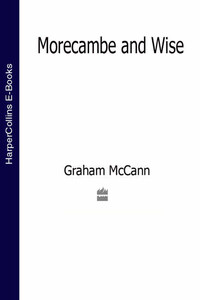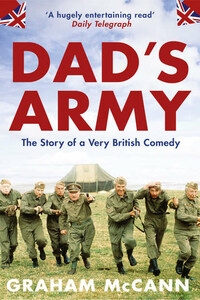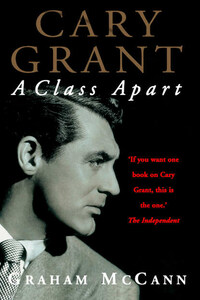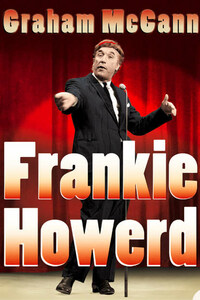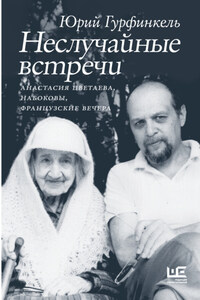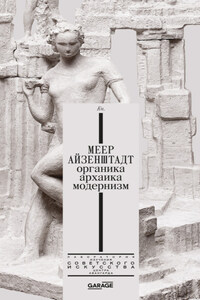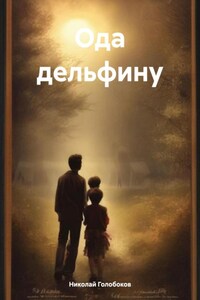Fourth Estate
A division of HarperCollinsPublishers
1 London Bridge Street
London SE1 9GF
www.haprercollins.co.uk
First published in Great Britain in 1998 by Fourth Estate Limited
This edition published in 1999
Copyright © Graham McCann 1998
The right of Graham McCann to be identified as the author of this work has been asserted by him in accordance with the Copyright, Designs and Patents Act 1988.
A catalogue record for this book is available from the British Library.
All rights reserved under International and Pan-American Copyright Conventions. By payment of the required fees, you have been granted the nonexclusive, nontransferable right to access and read the text of this e-book on-screen. No part of this text may be reproduced, transmitted, downloaded, decompiled, reverse-engineered, or stored in or introduced into any information storage and retrieval system, in any form or by any means, whether electronic or mechanical, now known or hereafter invented, without the express written permission of HarperCollins e-books.
HarperCollinsPublishers has made every reasonable effort to ensure that any picture content and written content in this ebook has been included or removed in accordance with the contractual and technological constraints in operation at the time of publication.
Source ISBN: 9781857029116
Ebook Edition © FEBRUARY 2015 ISBN: 9780008187552
Version: 2016-05-05
To John Ammonds
Great comedy, great wit, makes the ceiling fly off, and suddenly liberates us again as we were when we were much younger and saw no reason not to believe that we could fly, or become someone else, or bound on a trampoline and not come down.
PENELOPE GILLIAT
| ERIC | Let’s face it: he’s half a star, isn’t he? |
| ERNIE | Yes: I’m half a star. |
Television has shaped us – you can blame it for ‘abbreviated attention span’ and a failure to believe in realities; or you can notice how it promotes a low-level passive surrealism in expectations, and an uncatalogued memory bank for our minds. We may be more like crazed movie editors trying to splice our lives together because of TV. There is a resistance it has bred, as well as a chaos: you can’t have one without the other. And in the end, there is no point in being gloomy or cheerful about it. It’s there, here, without moratorium or chance of reversal.
DAVID THOMSON
Among those whom I like or admire, I can find no common denominator, but among those whom I love, I can: all of them make me laugh.
W. H. AUDEN
It happened one night. It happened, to be precise, at 8.55 p.m. on the night of 25 December 1977, when an estimated 28,835,000 people>1 – more than half of the total population of the United Kingdom – tuned their television sets to BBC1 and spent the next hour and ten minutes in the company of a rather tall man called Eric and a rather short man called Ernie.
It was an extraordinary night for British television in general and for the BBC in particular: 28,835,000 viewers for a single show. It was – at least as far as that catholic and capacious category known, somewhat apologetically, as ‘light entertainment’ was concerned – as close as British television had ever come, in some forty-one years of trying,>2 to being a genuine mass medium. None of the usual rigid divisions and omissions were apparent in the broad audience of that remarkable night: no stark class bias, no pronounced gender imbalance, no obvious age asymmetry, no generalised demographic obliquities.>3 The show had found its way into dense council estates, lofty tower blocks, smart suburban squares and leafily discreet country retreats – it was even watched with uncommon avidity at Windsor Castle, where assembled members of the Royal Family delayed their Christmas dinner until they had seen the show through to its proper conclusion.>4
It was also, of course, an extraordinary night for the two stars of that show: Eric Morecambe and Ernie Wise – by far the most illustrious, and the best-loved, double-act that Britain has ever produced. Exceptionally professional yet endearingly personable, they were wonderful together as partners, as friends, as almost a distinct entity: not ‘Morecambe and Wise’ but ‘Morecambewise’ – one never could see the join. There was Eric and there was Ernie: one of them an idiot, the other a bigger idiot, each of them half a star, together a whole star, forever hopeful of that ‘brand new, bright tomorrow’ that they sang about at the end of each show. True, Eric would often slap Ernie smartly on the cheeks, but that was just a welling-up of applause that had been brought to a head: they clearly thought the world of each other, and the world thought a great deal of them, too.
